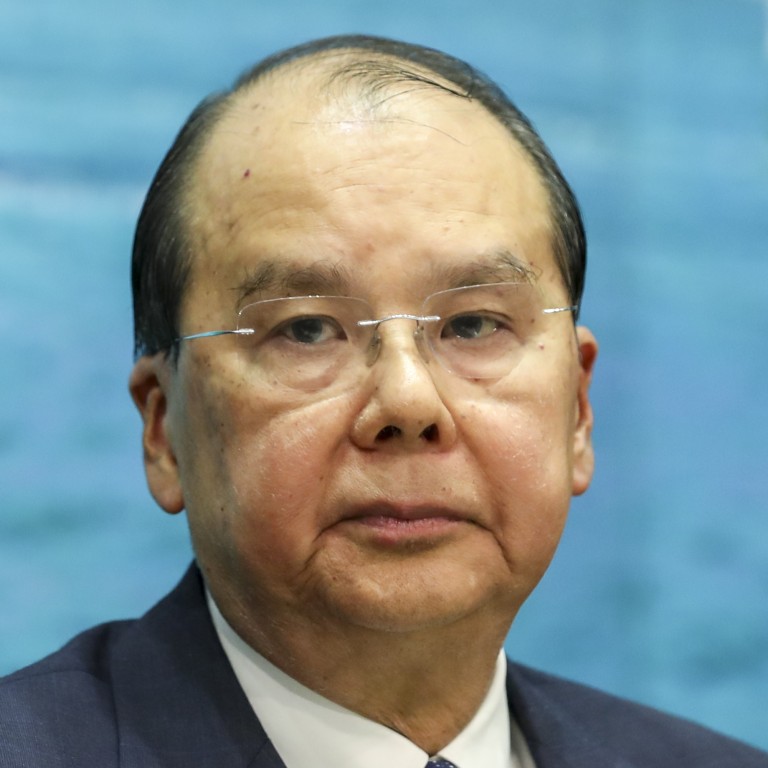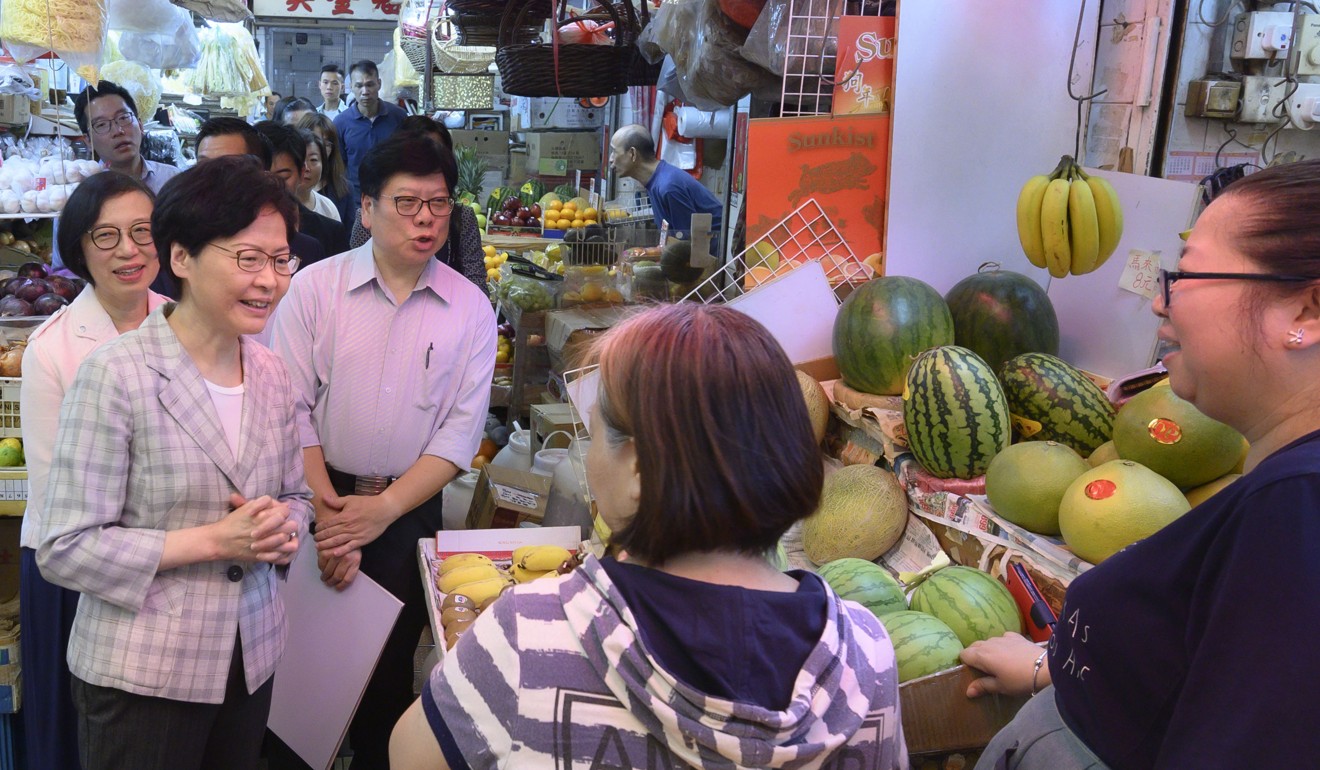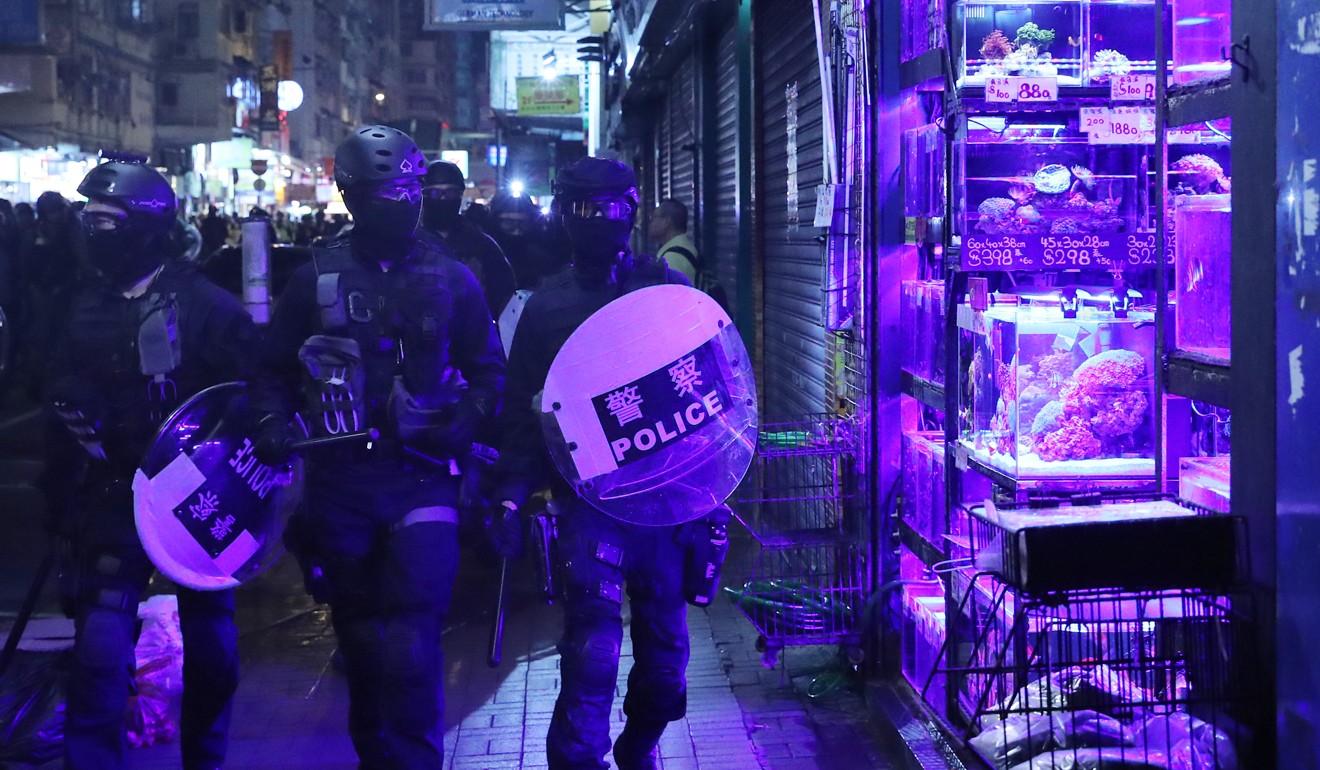
Withdrawal of extradition bill not an attempt to compromise with violent protesters, Hong Kong Chief Secretary Matthew Cheung says
- Hong Kong’s No 2 official says Chief Executive Carrie Lam wants to listen to grievances of local people
- Direct dialogues with communities should not be seen as ‘public relations stunt’, as the government is serious about solving city’s problems, he adds
Writing on his official blog on Sunday, Matthew Cheung Kin-chung said Chief Executive Carrie Lam Cheng Yuet-ngor was serious about listening to the grievances of Hong Kong’s people.
The chief secretary added the government would organise meetings for officials to talk to residents and hoped such gatherings would not be seen as a “public relations stunt”.
The city’s financial and welfare chiefs also wrote on their blogs that residents should set aside their differences and find solutions for Hong Kong.
Lam made a dramatic U-turn on Wednesday when she announced she would formally withdraw the bill, which had sparked a crisis in the city since early June. The bill would have allowed criminal suspects to be sent to mainland China for trial.

Lam also announced she and her principal officials would reach out to various communities to start direct dialogues.
Hong Kong leader Carrie Lam announces formal withdrawal of the extradition bill
But many protesters vowed to fight on until all five of their demands, including an independent inquiry into the police’s handling of the unrest, were met.
They also said the officials’ community dialogues would just be ceremonial, while pro-Beijing politicians questioned whether Lam was bowing down to the demands of violent protesters.
Cheung dismissed these suggestions.
“The dialogues will not be PR stunts or a means to procrastinate. The government is determined to find ways to solve Hong Kong’s deep-seated problems through serious and rational dialogue with residents,” he wrote.
Cheung said the government understood that Wednesday’s announcement was not sufficient to calm all the discontent in society.
“But it was the starting point for us to move on … It was not to compromise with, or show that we are weak in face of violence,” he said.
Financial Secretary Paul Chan Mo-po wrote he hoped Lam’s promises could help the city replace confrontation with communication.

“The protests have seriously damaged Hong Kong’s international reputation as a safe commercial, aviation and financial hub. The city’s economy was also badly hit,” he wrote.
Chan said the number of incoming travellers in August had decreased by 40 per cent year on year, while some hotels’ occupancy rates had dropped by more than half.
But Chan echoed Lam’s earlier comment that it was wrong for Fitch Ratings to downgrade the city’s rating one notch from AA+ to AA.
Carrie Lam visits Hong Kong districts, promises better livelihood options
Fitch said persistent protests put Beijing’s “one country, two systems” governing principle to the test, but Chan said the agency did not understand that the principle had allowed Hong Kong and mainland China to complement each other based on their strengths and needs.
Secretary for Labour and Welfare Law Chi-kwong hoped the recent announcement would help to improve the social atmosphere.
He wrote that the recent protests had affected relationships among friends and within families. He hoped people in need would seek help from professionals and take part in activities that would help them to relax and think positively.

